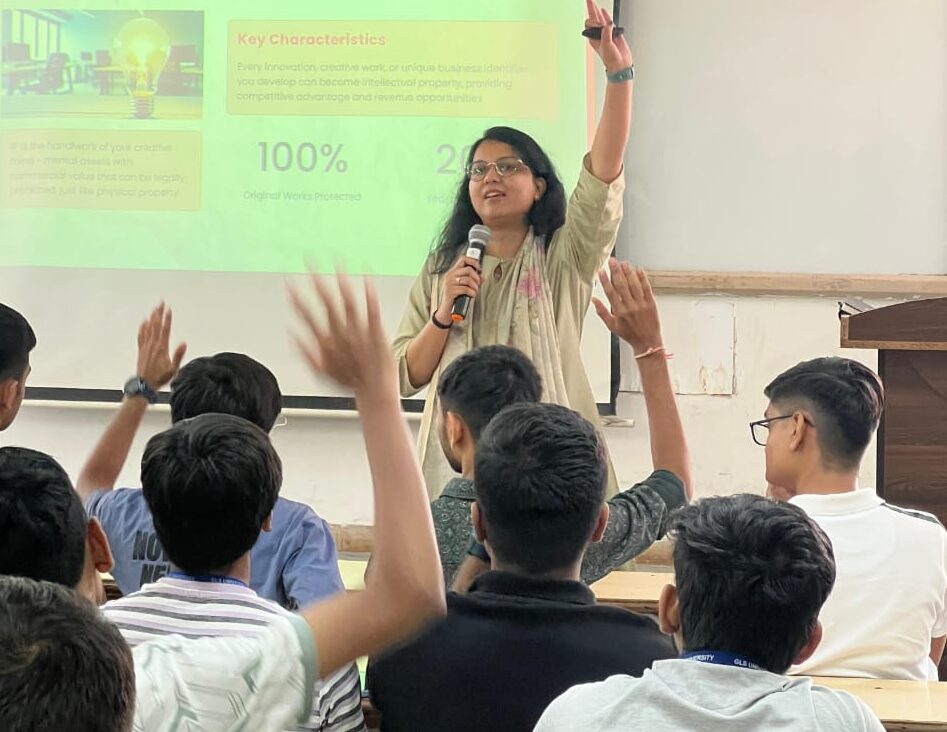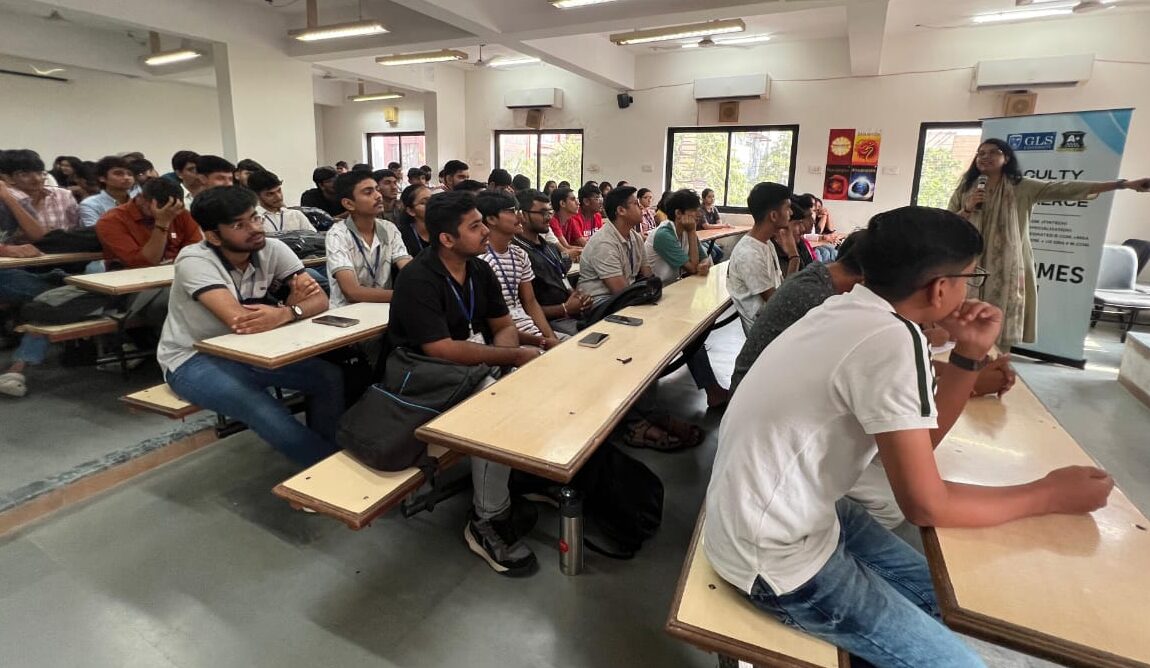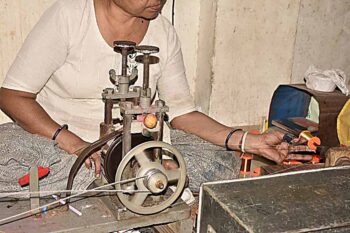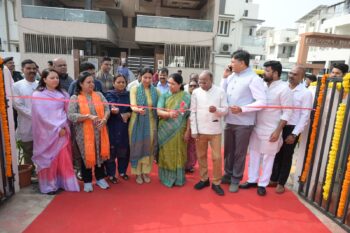“IPR – An Innovative Way to New India” at GLS-FOC

Ahmedabad, The Faculty of Commerce, GLS University, organized an insightful session on the theme “IPR – An Innovative Way to New India”, conducted by the distinguished speaker CS Dr. Yashree Dixit.
The session proved to be a thought-provoking and highly enriching experience for students and faculty members alike, as it highlighted the crucial role of Intellectual Property Rights (IPR) in shaping India’s innovation landscape and supporting its journey toward becoming a knowledge-driven economy.
Dr. Yashree Dixit began the session by explaining the essence of Intellectual Property Rights and why they are increasingly relevant in the present knowledge-based world. She emphasized that intellectual property is not confined merely to patents or trademarks but encompasses a wide array of creative and innovative expressions such as copyrights, geographical indications, industrial designs, and trade secrets.
Her opening remarks positioned IPR as a key driver of innovation, creativity, and economic growth, laying the foundation for the participants to understand the importance of the subject.

One of the striking aspects of the session was the way Dr. Dixit connected theoretical frameworks with practical relevance. She explained how intellectual property rights (IPR) act as a catalyst for innovation by ensuring that creators feel protected and rewarded, thereby encouraging investments in new ideas, technologies, and products. Providing a comprehensive overview of patents, trademarks, copyrights, industrial designs, and geographical indications, she illustrated their significance with relatable Indian and global examples, highlighting how these rights safeguard creators while benefiting society.
The session also emphasized India’s growing role in the global IPR regime, particularly through its alignment with treaties like TRIPS, which strengthens the country’s start-up ecosystem and research community to compete globally. Dr. Dixit further underscored the contribution of IPR to economic development, noting that it enhances the credibility of innovators, attracts investment, fosters entrepreneurship, and supports the commercialization of research. At the same time, she candidly acknowledged challenges such as limited awareness, weak enforcement, and the need for greater capacity building, stressing that addressing these issues is crucial for India to unlock the full potential of IPR for inclusive growth.
The session was not merely a lecture but an interactive dialogue. Students actively participated by raising questions on the process of patent filing, the significance of trademarks for start-ups, and the role of IPR in protecting digital innovations. Dr. Dixit responded to each query with clarity, using real-life case studies that made complex concepts easy to grasp. Her practical insights encouraged students to view IPR not just as a legal framework but as an empowering tool for their future careers and entrepreneurial ventures.
A central message of the session was that IPR is at the heart of building an innovative and self-reliant India. Dr. Dixit connected the subject with national missions such as Make in India, Start-up India, and Digital India. She stressed that for India to emerge as a global innovation hub, it must focus on promoting creativity while simultaneously protecting intellectual property. Her vision of “New India” is one where knowledge is valued, creativity is nurtured, and innovation is safeguarded through effective IPR practices.
The session by CS Dr. Yashree Dixit was both educative and inspiring, leaving the participants with a deeper appreciation of the role of Intellectual Property Rights in modern society. By linking theory with practical applications, she not only enhanced the academic understanding of the audience but also instilled in them the importance of safeguarding innovation as India advances toward becoming a knowledge-driven economy.
In conclusion, the session “IPR – An Innovative Way to New India” was a resounding success. It provided valuable insights, sparked curiosity, and motivated participants to engage proactively with the evolving IPR landscape. The Faculty of Commerce expressed gratitude to Dr. Dixit for her valuable time, expertise, and the passion with which she guided the audience toward envisioning a future where intellectual property becomes the foundation of innovation and national progress. The session was coordinated by CA DR. Sneha Master.




